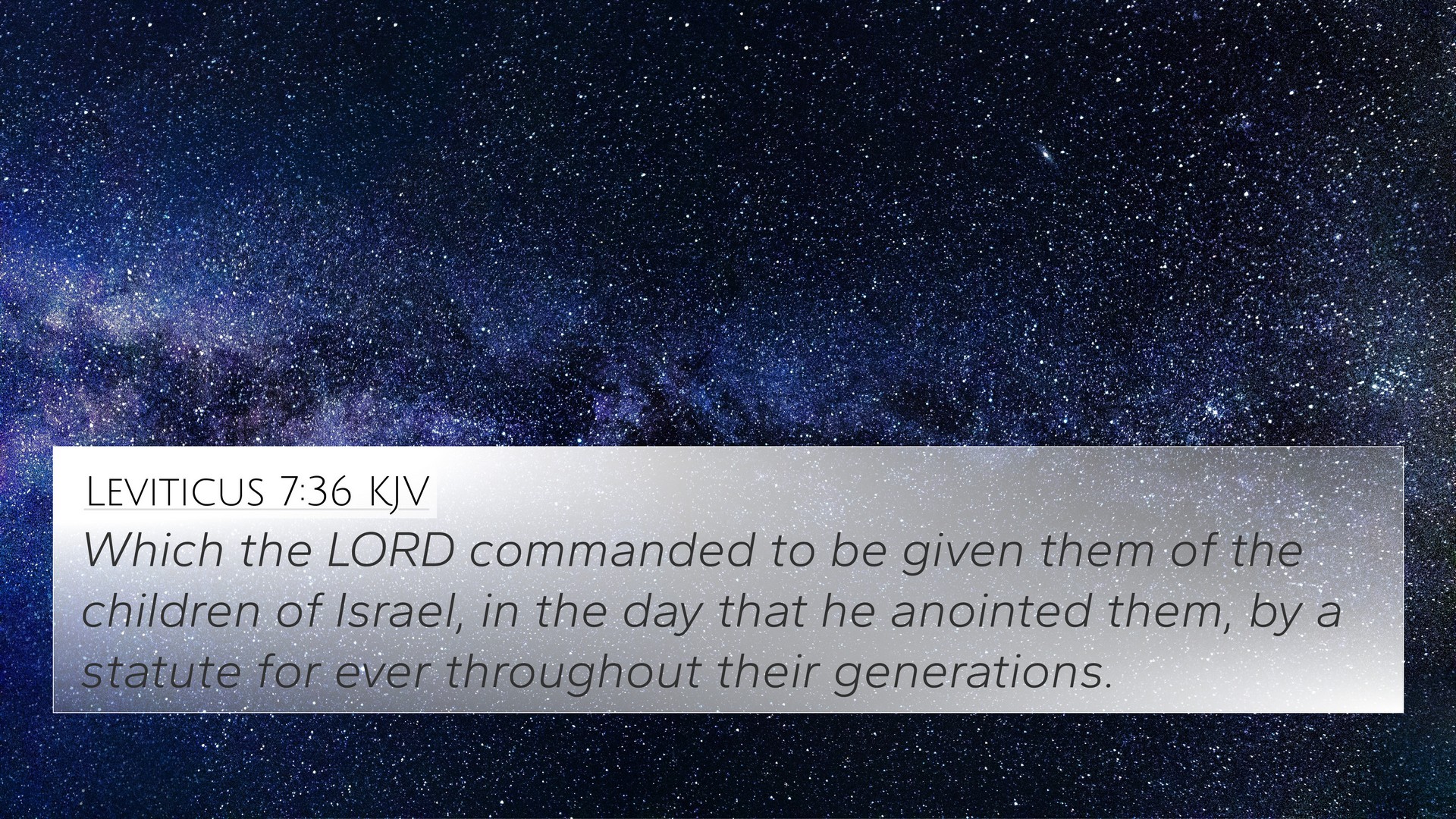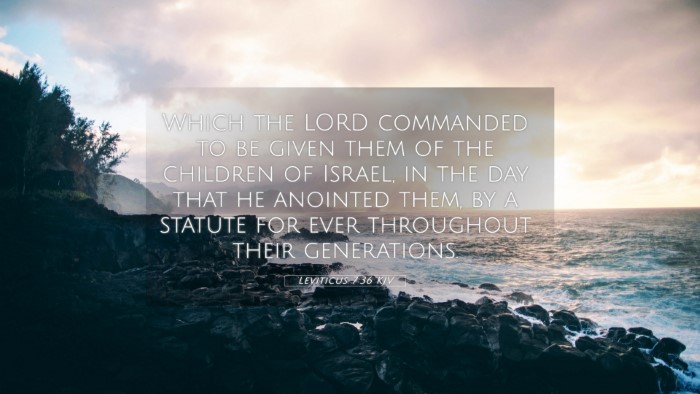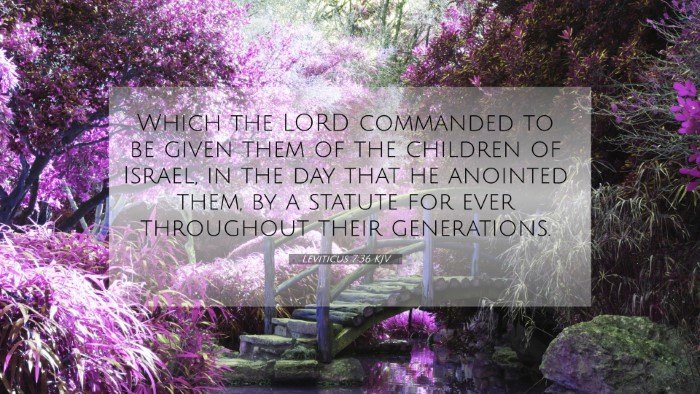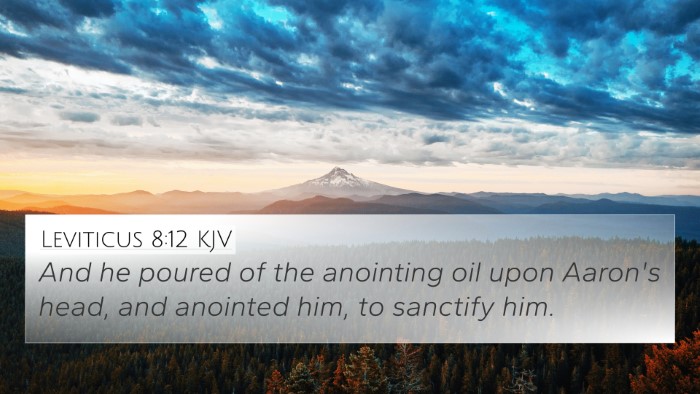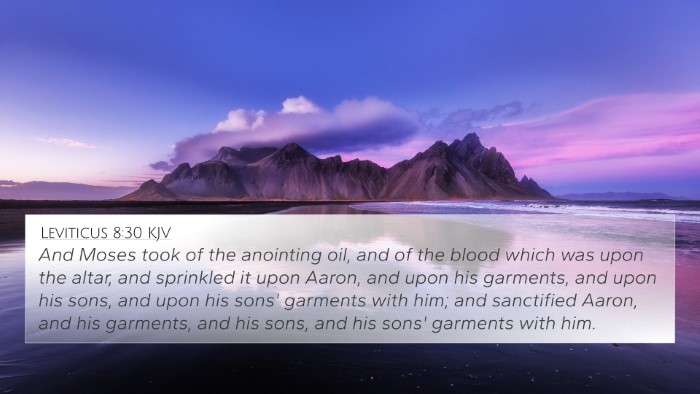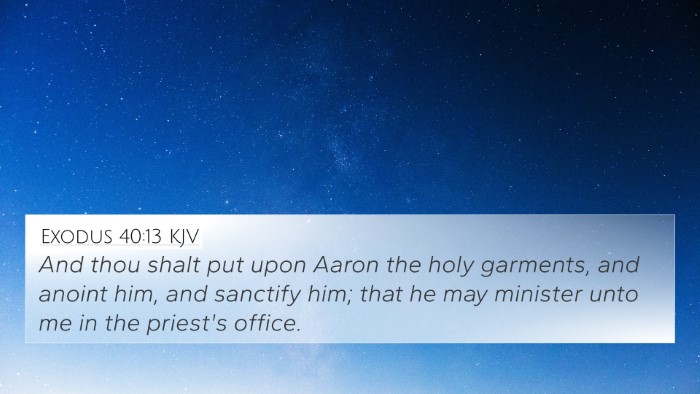Understanding Leviticus 7:36
Leviticus 7:36 states, "This is the portion of the anointing of Aaron, and the portion of his sons, which was offered of the offerings of the Lord made by fire, in the day when he presented them to minister unto the Lord in the priest's office." This verse illustrates the specific share of offerings designated for Aaron and his sons, highlighting the divinely ordained roles of the priesthood.
Contextual Background
The book of Leviticus is primarily concerned with the laws governing the priesthood and the various offerings made to God. In this context, Leviticus 7:36 specifically refers to the portions of offerings that were consecrated to the priests, emphasizing their sacred duty and the importance of their role in mediating between God and the people.
Insights from Public Domain Commentaries
- Matthew Henry: Matthew Henry explains that the portion of offerings given to Aaron and his sons symbolizes the honor bestowed upon the priestly office. He notes that such provisions were made so that priests could attend to holy duties without financial worry.
- Albert Barnes: According to Albert Barnes, this allocation underscores God's care for His servants and provides a clear indication that the maintenance of those who serve in sacred capacities is a divine ordinance.
- Adam Clarke: Adam Clarke emphasizes that this verse stipulates not only the material provisions for the priests but also serves as a reminder of the commitment required of them to their spiritual duties as mediators of the covenant.
Thematic Bible Connections
This passage connects with other scriptures that address the roles and responsibilities of priests. The consistent theme of divine provision for those who minister in sacred capacities is affirmed throughout the biblical text.
- Exodus 29:27-28: Discusses the consecration of the priests and the portions given to them from offerings.
- Numbers 18:8-9: Outlines the rights of the priests to receive offerings as their inheritance.
- 1 Corinthians 9:14: Reflects how the New Testament reiterates the concept that those who preach the gospel should earn their living from the gospel.
- Hebrews 7:12: Indicates a change in the priesthood and, as such, a change in the law regarding offerings.
- Malachi 1:6-8: Addresses the need for reverence and appropriate offerings to God, showing the priest's responsibility in offering right sacrifices.
- Matthew 10:10: Jesus mentions workers are worthy of their food, echoing the need for support for those in sacred service.
- Luke 10:7: Relates to the idea that laborers in the kingdom are to be supported appropriately.
Cross-Referencing Biblical Texts
Leviticus 7:36 serves as a prime example for those studying cross-referencing in the Bible, providing a foundation for understanding how different passages interrelate theme-wise and doctrinally. Here are some methods for effective cross-referencing:
- Utilize a Bible Concordance: A concordance can help locate similar themes or references quickly.
- Categorize Biblical Themes: Grouping passages by themes can reveal deeper insights (e.g., priesthood, sacrifices).
- Verse Mapping: This method involves writing down related verses and their meanings to see their interconnections.
Conclusion
Leviticus 7:36 is significant vnot only for its immediate context regarding the priestly offerings but also for its broader implications on the importance of honoring God's servants. By understanding this verse through various cross-references, readers can develop a holistic approach to scriptural interpretation, reinforcing the interconnectedness of biblical themes.
Further Study and Exploration
For anyone interested in delving deeper into the connections between Bible verses, various tools for Bible cross-referencing are available. Engaging in comparative Bible verse analysis allows for a richer understanding and appreciation of scripture, enhancing both personal study and communal teaching.
